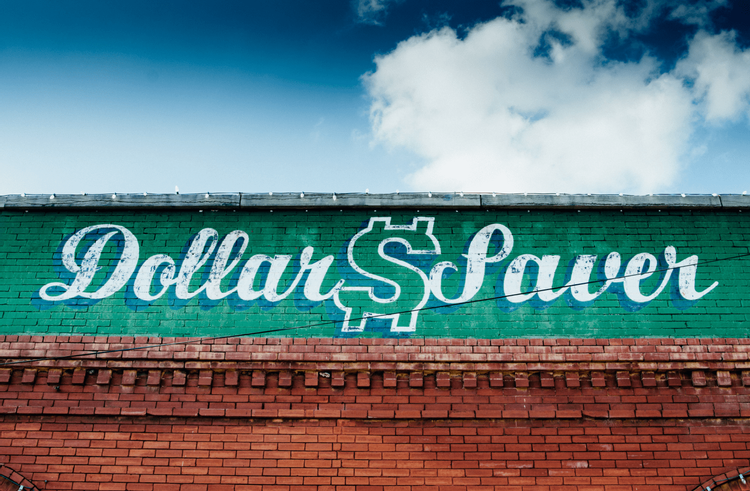2025 Cost of Living in Nashville: Is Music City Still Affordable?


by Tyler Forte
Metropolitan cities don’t exactly hold a reputation for being cheap. However, for years, Nashville's gained praise for having a low cost of living. Now with the city’s development soaring, you might be wondering what that means for your wallet.
Felix Homes is here to help you decide if living in Nashville works for your budget. In this article, we’re breaking down Nashville’s cost of living and seeing how it stacks up against other cities. We’re also taking a look into how much you’ll need to make in order to live comfortably here in Music City.
What Is The Cost Of Living Index?
The cost of living index measures the average expenses a person pays for basic living expenditures, including food, shelter, utilities, transportation, and healthcare. The metrics allow you to compare the price of living in one place against another. The U.S national average serves as the baseline for the scaleable index, which is set at 100. City indexes that fall below 100 indicate less expensive, and vice versa.
The concept is a little tricky, mainly because there isn’t one official index created or noted by the U.S government. But don’t worry, there are a handful of reputable organizations that source and track all of this information for us.
For the purposes of this article and avoiding any inconsistencies, we’ll analyze a few standard averages from the information provided by Sperling’s Best Places and Numbeo.
As a benchmark, the U.S national averages include:
- Cost of living: 100
- Median household income: $53,482
- Median home cost: $231,200
- Inexpensive Restaurant (meal for one): $15
- A gallon of milk: $3.24
- A gallon of gas: $2.61
Food Cost In Nashville
There’s no denying the awesome restaurant and bar scene in Nashville, but we’re going to assume you won’t be dining out every day if you live here. The average price of groceries in Nashville measures at 102, or only 2% higher than the national average. While your personal preferences will dictate your actual expenses, most common grocery staples shouldn’t set you back too far. On average, a gallon of milk will cost you around $3.30 in Nashville.
A single Nashville resident can expect to spend between $168 - $357 each month on groceries, and a family of four around $775 - $900. You can save by shopping what’s in season, on-sale, or even clipping coupons. When it comes to finding the best value in town, local residents prefer stores like ALDI, Piggly Wiggly, Publix, and United Grocery Outlet.
Music City has a variety of options for dining out, with a number of casual, low-cost eateries available. A standard inexpensive meal for one will cost about $14.50, whereas a dinner for two at most middle-tier restaurants averages around $62.50. Keep in mind, the prices of dining out can add up quickly, and you can save a lot by cooking at home (cough, orders GrubHub).
Healthcare Cost In Nashville
The cost of healthcare in Nashville falls 3.3% lower than the U.S average. Healthcare expenses in a location often vary depending on the number of available doctors or physicians. In Nashville, there are 347 physicians per 100,000 residents, compared to the nation’s average of 210 per 100,000 people.
Healthcare prices and plans are also uniquely dependent on one’s own health factors, such as age, obesity, smoking, or consumption of alcohol. The average premium for a single Nashville resident can range anywhere from $235 - $500, and for a family of four between $1,350 - $1,650. If not accounting for medical insurance, a trip to the doctor runs about $90, the dentist is $80, and a visit to the optometrist is around $85 on average.
Transportation Cost In Nashville
Nashville wasn’t exactly designed to serve the population it currently does now. Therefore, its infrastructure and public transportation options aren’t the most efficient. WeGo Public Transit is Nashville’s public bus system. A standard one-way ride costs $2. The bus routes primarily run throughout the downtown region, but the system as a whole isn’t as utilized as many other major cities.
In general, the majority of the residents living in Nashville have a car. The average cost of car insurance for a full coverage policy is $1,338 and $371 for minimum coverage. Keep in mind, exact rates do vary depending on a number of factors. As with anywhere in the U.S., gas prices fluctuate often. On average, a gallon of gas runs around $2.30, which is 31 cents lower than the national average.
PRO TIP: See a list of the most-walkable Nashville neighborhoods
Cost Of Utilities In Nashville
How much you pay for utilities can really depend on a number of individual factors. However, overall utility prices are comparable to the U.S average, and the city of Nashville's average is only slightly higher than other parts of Tennessee.
A standard utility bill for a 915 sqft apartment is $160.56 on average, which includes electricity, heating, cooling, water, and trash. While that example groups all utilities into one, some landlords even include the utilities in the rent.
Internet services are also categorized into utility expenses. While some may argue that it doesn’t totally meet the criteria of a “basic necessity”, nowadays, it’s pretty standard. We’ll take it that you agree since you’re reading this article via the internet. That being said, you can expect a basic internet bill in Nashville (60 Mbps+, Unlimited Data, Cable) to cost around $65.79 each month.
Housing Cost In Nashville
Depending on the area in Nashville that you’re looking to buy, home prices can vary significantly. The median home price in Davidson county is $415,000, but if you’re aspiring to be close to the city center that number can run much higher. Additionally, the style of the home will also influence the price. Based on data from Realtracs MLS, the average sales price of a Nashville single-family home is around $551,568, while the average price of condos or townhomes is $371,996.
Home prices tend to be higher in Nashville compared to the other areas in the state. However, in relation to other metropolitan cities, the housing costs aren’t too bad. Even though Nashville’s housing prices are on the rise, you can still find some great deals! This is especially true if looking in one of Nashville’s up-and-coming neighborhoods.
The rental market in Nashville is quite favorable. A typical one-bedroom apartment in Nashville runs between $1,000 - $1,400. Smaller studio units are often even less. If comparing rent prices to a larger city, such as New York or San Francisco, you could end up saving thousands.
PRO TIP: See the latest listings in Nashville
Taxes
One great thing about living in Tennessee is that there is no state income tax! This means you’re keeping more of the money you earn on each paycheck, sounds like a win in my book. The sales tax in Tennessee is 7%, and Davidson County adds on an additional 2.25%. In total, Nashville residents can expect a 9.25% total sales tax rate, which is slightly higher than some states but not the worst.
In the state of Tennessee, local jurisdictions set and collect property taxes. The property tax rate in Davidson County for Urban Services District is $4.221, and the rate for General Services District is $3.788. Residential property tax is based on the assessed value, which is 25% of the appraised value.
Which Cities In The U.S. Have The Highest Cost Of Living
- New York City, New York
- San Francisco, California
- Honolulu, Hawaii
- Boston, Massachusetts
- Washington, D.C.
- Oakland, California
- San Jose, California
- San Diego, California
- Los Angeles, California
- Miami, Florida
How Does Nashville's Cost Of Living Compare To Other Cities In The U.S.
In a recent study, Nashville ranked #23 out of 75 cities with the highest cost of living. The overall expenses for living in Music City overtook popular destinations like Dallas and New Orleans. However, if you’re comparing Nashville’s prices against any of the top 10 cities listed above, Nashville checks in far below.
Nashville's cost of living index:
- Cost of living: 101. 4
- Median household income: $46,758
- Median home cost: $262,000
- Inexpensive Restaurant (meal for one): $14.50
- A gallon of milk: $3.30
- A gallon of gas: $2.30
New York City's cost of living index:
- Cost of living: 187.2
- Median household income: $52,737
- Median home cost: $680,500
- Inexpensive Restaurant (meal for one): $20
- A gallon of milk: $4.48
- A gallon of gas: $2.83
How Does Nashville's Cost Of Living Compare To Other Cities In Tennessee
The cost of living in Nashville is roughly 14% higher than the state’s overall average. Tennessee, as a whole, definitely meets the criteria for a budget-friendly state. However, as with any vibrant entertainment hub, you can expect to pay a premium to live in the center of the action.
How Much Do You Need To Make To Live Comfortably In Nashville
Now, onto one of the most commonly asked questions - how much should you aim to make in order to live in Nashville. Of course, you’ll need to consider your overall expenses. For most people, the cost of housing is their primary expense.
Experts suggest following the 30% rule, which notes spending 30% of your gross income on rent. With an average rent expense in Nashville at $1,400, you’d want to aim for making around $4,670 each month or $56,040 annually, before taxes. By no means is this a one-size-fits-all standard, and the 30% rule is simply just a guideline.
Also, depending on where you want to live in Nashville, chances are you can find housing at a much lower price than $1,400 a month. Now, let’s say your monthly rent is $1,000. At that price, you’d need to aim for making about $3,335 a month or roughly $40K a year. And, that’s still following the 30% rule!
About Felix Homes
Felix Homes is where five-star service meets low commissions! To date, we've saved our clients $1,610,738 in commission fees and have earned 120 five-star reviews on Google!
How are we able to offer five-star service AND lower commission fees? It's simple:
- We're an independently owned brokerage – not a franchise which allows us to keep more of the commission we earn.
- By offering a lower commission, more folks want to work with us which means we close more deals. By closing more deals, we can pass more savings along to our customers!
Still not convinced? Read all about our low-commission mission here.
If you have any questions about the state of the market or the home buying/selling process, please feel free to contact us at contact@felixhomes.com or 615-354-5731.




